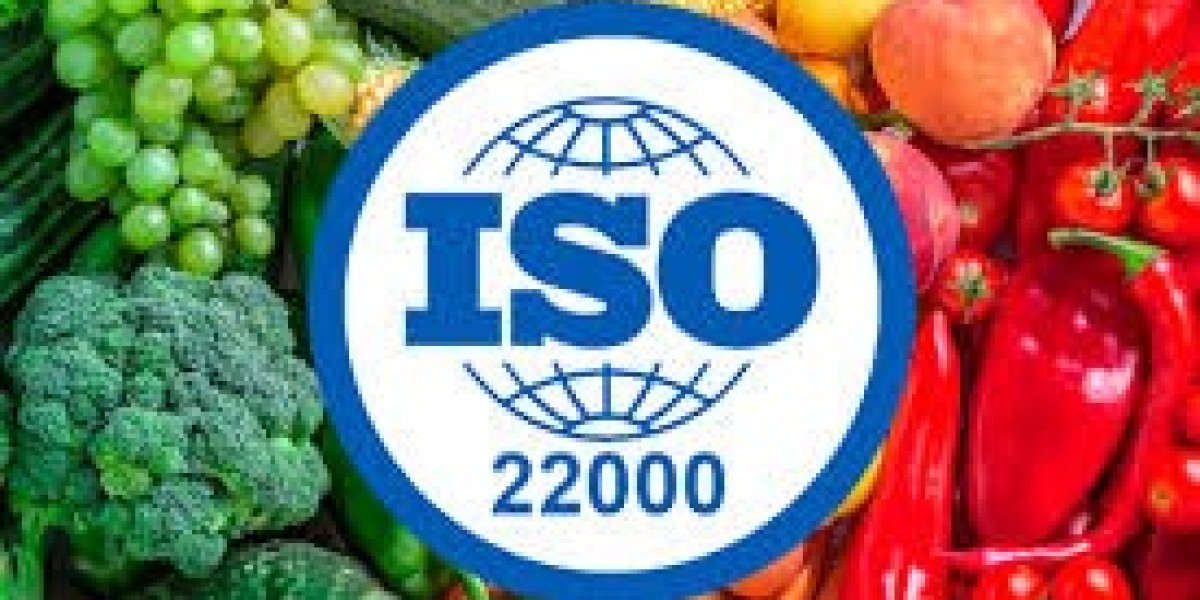ISO 22000 Certification in Nigeria
Introduction
ISO 22000 is an international standard that defines the requirements for a food safety management system. It integrates and complements the elements of ISO 9001 and HACCP to ensure the safety of food at all stages of the supply chain. In Nigeria, food safety is a critical concern due to the diverse food industry and the need to meet international trade requirements. The ISO 22000 certification provides a framework for businesses in Nigeria to identify, prevent, and manage food safety risks. This certification not only enhances consumer confidence but also improves market access for Nigerian food products.
The Importance of ISO 22000 Certification in Nigeria
ISO 22000 certification is crucial for Nigeria's food industry for several reasons. First, it addresses the challenges of food safety and hygiene, which are paramount in a country with a growing population and a dynamic food market. The certification ensures that food products are safe for consumption, reducing the risk of foodborne illnesses. This is particularly important in Nigeria, where foodborne diseases are a significant public health concern. By adhering to ISO 22000 standards, companies can mitigate these risks and protect consumers' health.
Moreover, ISO 22000 certification enhances the competitiveness of Nigerian food products in the global market. International trade often requires compliance with stringent food safety standards. With ISO 22000, Nigerian companies can demonstrate their commitment to food safety, thereby gaining access to more lucrative markets. This certification can also lead to increased customer satisfaction and loyalty, as consumers are assured of the safety and quality of the food they purchase. Furthermore, it can improve operational efficiency by streamlining processes and reducing waste, leading to cost savings for businesses.
Implementation of ISO 22000 in Nigerian Businesses
The implementation of ISO 22000 in Nigerian businesses involves several key steps. Initially, companies must conduct a thorough gap analysis to identify areas where their current practices do not meet the standard's requirements. This involves evaluating existing food safety management systems, processes, and documentation. Based on the findings, businesses can develop an implementation plan that outlines the necessary changes and improvements. This plan should include timelines, resource allocation, and responsibilities to ensure a smooth transition.
Employee training and awareness are critical components of implementing ISO 22000. All staff members, from top management to frontline workers, must understand the importance of food safety and their roles in maintaining it. Training programs should cover the principles of ISO 22000, hazard analysis, critical control points (HACCP), and best practices in food safety management. Regular audits and reviews are also essential to monitor progress and ensure compliance with the standard. These audits can be conducted internally or by external certification bodies to provide an unbiased assessment of the food safety management system.
Challenges and Solutions in Achieving ISO 22000 Certification
Achieving ISO 22000 certification in Nigeria can be challenging due to various factors. One of the main challenges is the lack of awareness and understanding of the standard among businesses, particularly small and medium-sized enterprises (SMEs). Many companies may not have the necessary expertise or resources to implement the standard effectively. Additionally, the cost of certification can be prohibitive for some businesses, especially those operating on tight budgets. These challenges can hinder the widespread adoption of ISO 22000 in the Nigerian food industry.
To overcome these challenges, businesses can seek support from government agencies, industry associations, and international organizations. These entities can provide training, technical assistance, and financial support to help businesses achieve certification. Collaboration and information sharing among companies can also facilitate the implementation process. Larger companies that have successfully achieved ISO 22000 certification can mentor and support smaller businesses in their journey. Moreover, leveraging technology and digital tools can streamline the implementation process, making it more efficient and cost-effective.
Benefits of ISO 22000 Certification for Nigerian Consumers and Businesses
ISO 22000 certification offers numerous benefits for both consumers and businesses in Nigeria. For consumers, the certification ensures that the food products they purchase are safe, of high quality, and free from contaminants. This enhances consumer confidence and trust in Nigerian food products, contributing to better public health outcomes. For businesses, ISO 22000 certification can lead to increased market opportunities, both domestically and internationally. Certified companies can access new markets and customers, boosting their revenue and growth prospects.
Furthermore, ISO 22000 certification can improve a company's reputation and brand image. Being recognized as a provider of safe and high-quality food products can differentiate a business from its competitors, attracting more customers and business partners. The certification can also lead to operational improvements, such as better process control, reduced waste, and increased efficiency. These improvements can result in cost savings and higher profitability for businesses. Additionally, compliance with ISO 22000 can enhance regulatory compliance, reducing the risk of legal issues and penalties.
Conclusion
iso 22000 certification in nigeria is a vital tool for ensuring food safety in Nigeria. It addresses the critical need for safe and high-quality food products, benefiting consumers and businesses alike. The implementation of this standard can be challenging, but with the right support and resources, Nigerian companies can achieve certification and reap the associated benefits. By adhering to ISO 22000 standards, businesses can improve their competitiveness, operational efficiency, and market access, while consumers can enjoy safer and higher-quality food products. As the food industry in Nigeria continues to grow, ISO 22000 certification will play an increasingly important role in safeguarding public health and promoting economic development.








